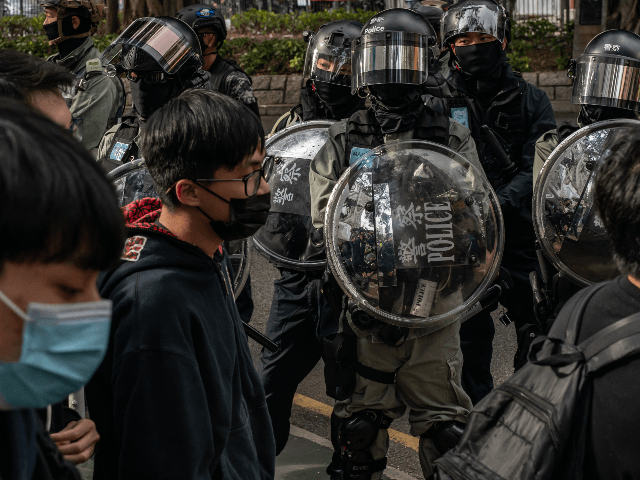At a meeting of Hong Kong’s Legislative Council, commonly referred to as LegCo, Security Minister John Lee tacitly defended plans to deploy electroshock weapons against protesters. According to Lee, bringing more nonlethal weapons to bear at the “appropriate time” can “reduce the risk of injuries.”
Lee was quizzed by legislator Roy Kwong of the Democratic Party about reports in several media outlets that Hong Kong police officers may soon be equipped with tasers, stun guns, and net guns.
While such equipment is not uncommon among law enforcement agencies around the world, it has not been widely used in Hong Kong until now. According to sources in law enforcement, the Hong Kong police have been testing stun weapons ever since the Lunar New Year riots in the turbulent Mong Kok district in 2016.
Tear gas, beanbag rounds, and rubber bullets are more frequently employed by Hong Kong police, and there have been plenty of complaints about how frequently they were employed since the current protests began last year.
“Was using tear gas and rubber bullets on Hong Kong people not enough? And now you are introducing tasers? Have there been any deaths arising from the use of electroshock weapons overseas?” Kwong asked Lee at the LegCo meeting.
Lee replied that his agency is prepared to consider “any method that helps police in handling violence caused by rioters more efficiently, and will reduce the risk of injuries to both parties.”
“Police will look into the efficacy of a tool in terms of law enforcement, as well as its risks. I know that any equipment under consideration by the police has been used overseas by developed nations and that the equipment has a good track record. Appropriate usage at the appropriate time can reduce the risk of injuries,” he said.
Critics both within and outside LegCo noted that nonlethal weapons can cause health problems, and pointed out that Hong Kong police are already facing criticism for refusing to disclose the chemicals used in their tear gas and pepper spray.
A special item of concern is the blue dye police have been mixing into water cannon sprays. The pigment is supposed to make vandals easier to track down and arrest, but some who have been exposed to the dye claim it includes caustic agents. The police have been accused of lying to the public and creating health risks by claiming the dye is harmless.

COMMENTS
Please let us know if you're having issues with commenting.